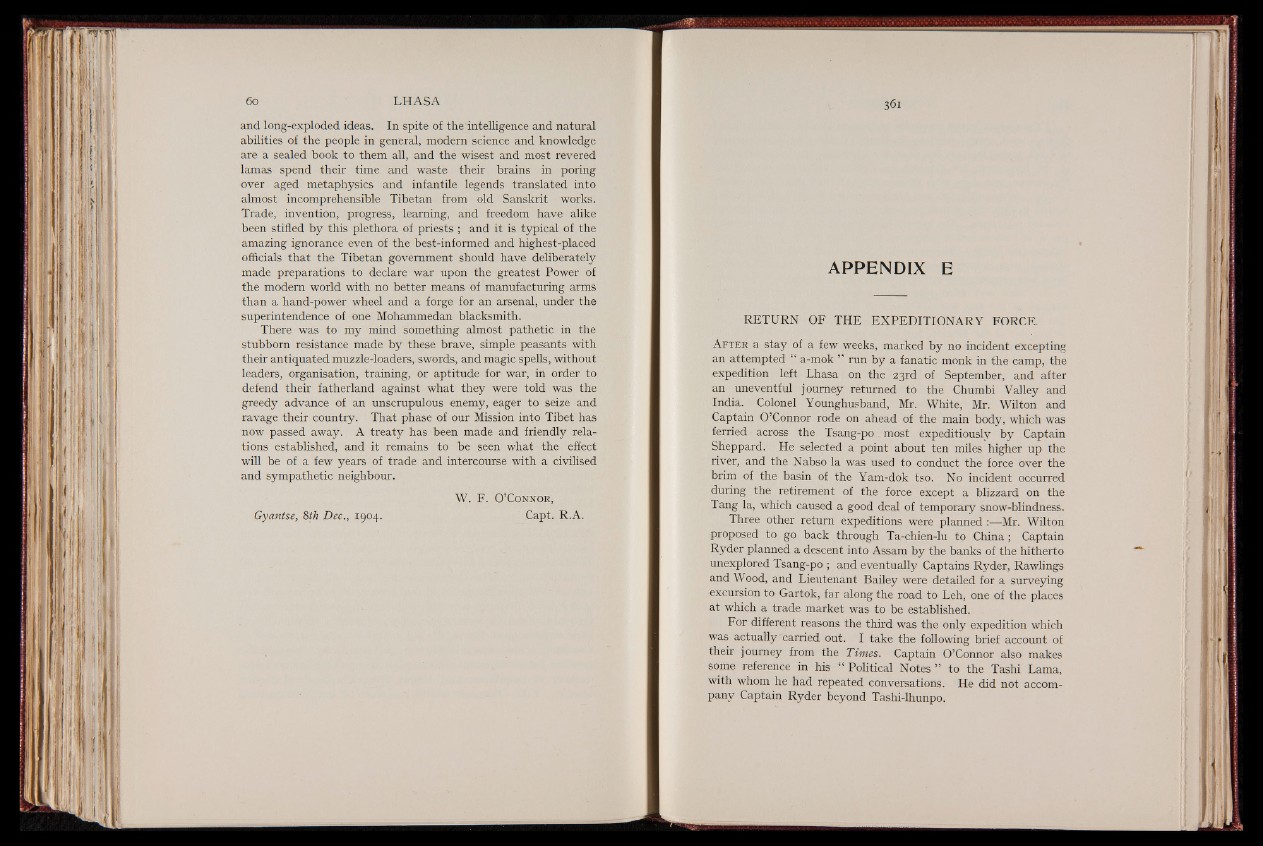
and long-exploded ideas. In spite of the intelligence and natural
abilities of the people in general, modern science and knowledge
are a sealed book to them all, and the wisest and most revered
lamas spend their time and waste their brains in poring
over aged metaphysics and infantile legends translated into
almost incomprehensible Tibetan from old Sanskrit works.
Trade, invention, progress, learning, and freedom have alike
been stifled by this plethora of priests ; and it is typical of the
amazing ignorance even of the best-informed and highest-placed
officials that the Tibetan government should have deliberately
made preparations to declare war upon the greatest Power of
the modem world with no better means of manufacturing arms
than a hand-power wheel and a forge for an arsenal, under the
superintendence of one Mohammedan blacksmith.
There was to my mind something almost pathetic in the
stubborn resistance made by these brave, simple peasants with
their antiquated muzzle-loaders, swords, and magic spells, without
leaders, organisation, training, or aptitude for war, in order to
defend their fatherland against what they were told was the
greedy advance of an unscrupulous enemy, eager to seize and
ravage their country. That phase of our Mission into Tibet has
now passed away. A treaty has been made and friendly relations
established, and it remains to be seen what the effect
will be of a few years of trade and intercourse with a civilised
and sympathetic neighbour.
Gyantse, 8th Dec., 1904.
W . F. O ’Connor,
Capt. R.A.
APPENDIX E
RETURN OF THE EXPEDITIONARY FORCE.
A f t e r a stay of a few weeks, marked by no incident excepting
an attempted “ a-mok ” mn by a fanatic monk in the camp, the
expedition left Lhasa on the 23rd of September, and after
an uneventful journey returned to the Chumbi Valley and
India. Colonel Younghusband, Mr. White, Mr. Wilton and
Captain O’Connor rode on ahead of the main body, which was
ferried across the Tsang-po. most expeditiously by Captain
Sheppard. He selected a point about ten miles higher up the
river, and the Nabso la was used to conduct the force over the
brim of the basin of the Yam-dok tso. No incident occurred
during the retirement of the force except a blizzard on the
Tang la, which caused a good deal of temporary snow-blindness.
Three other return expeditions were planned :— Mr. Wilton
proposed to go back through Ta-chien-lu to China; Captain
Ryder planned a descent into Assam by the banks of the hitherto
unexplored Tsang-po ; and eventually Captains Ryder, Rawlings
and Wood, and Lieutenant Bailey were detailed for a surveying
excursion to Gartok, far along the road to Leh, one of the places
at which a trade market was to be established.
For different reasons the third was the only expedition which
was actually'carried out. I take the following brief account of
their journey from the Times. Captain O’Connor also makes
some reference in his “ Political Notes” to the Tashi Lama,
with whom he had repeated conversations. He did not accompany
Captain Ryder beyond Tashi-lhunpo.